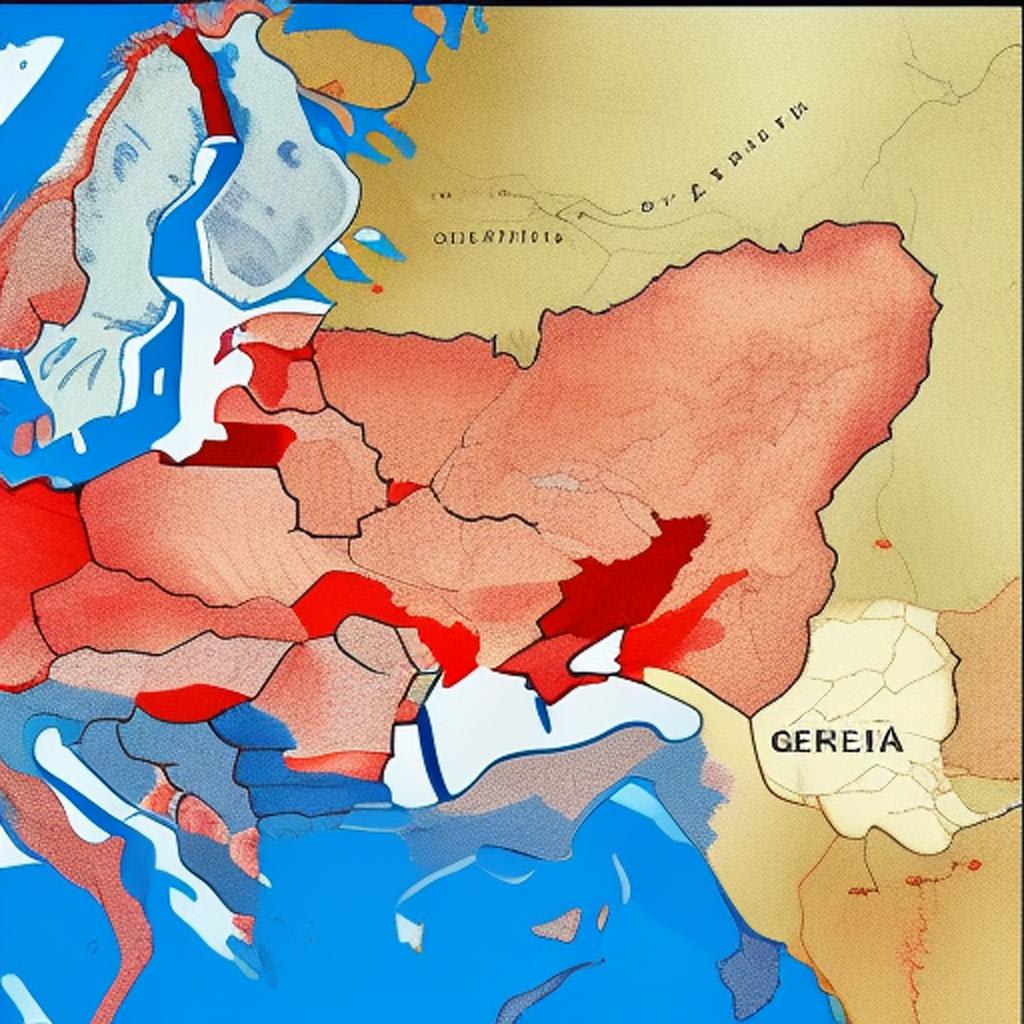Greece's Cold War Miracle: Defying the Red Tide
How Geography, Diplomacy, and Resolve Saved Greece from Soviet Influence

In the wake of World War II, Europe found itself divided into Eastern and Western blocs, with numerous nations falling under the sphere of influence of the Soviet Union. An intriguing exception to this pattern was Greece. Despite its proximity to communist countries and a substantial communist resistance within its borders, Greece resisted becoming a Soviet satellite during the Cold War. This raises the intriguing question: what factors shielded Greece from such a fate?
By 1943, many observers in the United Kingdom foresaw the eventual triumph of the Soviet Union as Germany's defeat became increasingly apparent. While Winston Churchill welcomed the defeat of the Axis powers, he harbored deep concerns about the prospect of a Soviet-dominated Europe. Consequently, he devised a strategy aimed at ensuring that the USSR would not solely claim credit for Germany's downfall. Churchill's plan revolved around utilizing the might of the United States military. The initial step involved the conquest of North Africa, followed by an invasion of Italy. Subsequently, the Allies would rapidly advance into the Balkans, effectively blocking the Red Army's advance before it reached Romania.
However, Churchill's ambitious plan contained a fundamental flaw—it was operationally unfeasible. Churchill himself came to this realization by 1944. Consequently, he initiated negotiations with the Soviet Union to secure a degree of independence from communism for Eastern and Southern European nations. This was to be achieved by preserving the monarchy in these countries. Franklin D. Roosevelt, then President of the United States, held reservations about Churchill's approach, resulting in Churchill conducting negotiations with Stalin independently.
As a result of these negotiations, the UK and the USSR reached an accord known as the "percentages agreement." Under this agreement, each nation in the region would experience a specific level of influence from either the Western bloc or the USSR. Romania, for instance, would fall entirely under Soviet influence, with no Western presence allowed. Yugoslavia would be split evenly, while Bulgaria and Hungary would predominantly align with the Soviet bloc but permit a limited Western presence. Greece, on the other hand, would have a Western-aligned government, but the Communist party would be allowed to participate in elections.
However, the significance of this agreement waned rapidly as these nations swiftly adopted communist governments and distanced themselves from the West. So, why did Greece not follow suit? The primary answer lies in its geographical location. If Greece had aligned with the Communist bloc, it could have served as a naval base to disrupt British shipping in the Mediterranean. Consequently, the British were willing to cooperate with former collaborators and non-communist factions.
Remarkably, this cooperation resulted in clashes between British troops and Greek resistance fighters. Stalin opted to abstain from intervening in this conflict, recognizing that Britain viewed a communist-controlled Greece as a substantial threat to its empire and would not capitulate willingly. Consequently, maintaining amicable relations was Moscow's pragmatic choice over a country of limited strategic significance.
Furthermore, Stalin believed that if the USSR provided direct support to Greek Communists, the USA would reciprocate. Such support, particularly when coupled with assistance from neighboring Yugoslavia and Albania, could have bolstered the chances of success for Greece's Communist factions. However, when the USSR and Yugoslavia experienced a falling out, this support waned, leaving Greek Communists isolated. With the United States entering the fray in 1949, Greece's fate was decisively sealed, solidifying its membership in the Western capitalist world.
In conclusion, Greece's remarkable avoidance of becoming a Soviet puppet during the Cold War can be attributed to a combination of geographical factors, the pragmatism of international powers, and shifting alliances. This historical episode serves as a testament to the complex geopolitical dynamics that shaped the post-World War II world order.





Comments
There are no comments for this story
Be the first to respond and start the conversation.